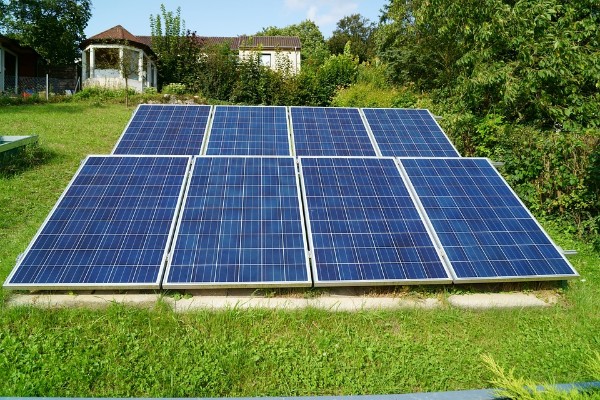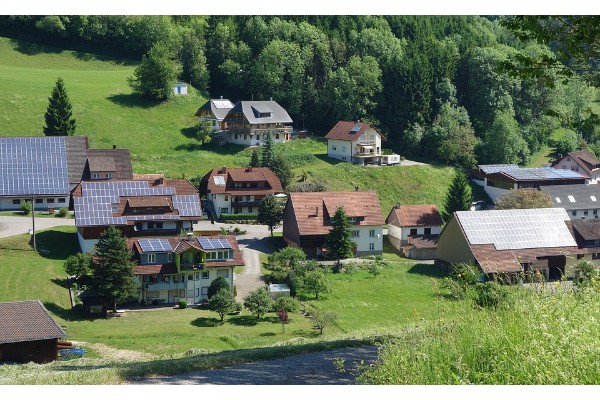One of the biggest decisions you can make for your home is whether to install solar. It makes sense to want to know the whole story about whether the investment is worthwhile and when you can expect to get your money back.
By installing solar, you can significantly lower your monthly energy costs and contribute to the reduction of carbon emissions. You must store the solar energy you generate in order to increase self-consumption and ensure that you will recover costs more quickly. And solar batteries are used to accomplish this.
More discussion of every aspect of solar energy storage will be covered in this blog.
Types Of Solar Energy Storage
Battery Storage
The most popular method for storing solar energy in residential installations is by far batteries. A chemical reaction between the battery’s constituent parts stores the energy that is pumped into the battery from the sun. When a battery is discharged, the reaction is reversible, allowing current to leave the battery. The majority of lithium-ion batteries are used in solar applications, and new battery technology is advancing quickly with the promise of producing more scalable, more affordable battery storage solutions. In fact, it is anticipated that the market for energy storage in the United States will grow to nearly 7.5 GW annually by 2025, a sixfold increase from 2020.
Thermal Storage
In order to absorb and store heat from the sun, thermal energy storage uses a variety of mediums, such as water or molten salt. Until the energy is required, usually to boil water for energy production, this heated medium is kept in an insulated tank.
Mechanical Storage
The potential energy of an object is utilized by mechanical energy storage to produce electricity. For later use, mechanical storage techniques transform excess electrical power into mechanical power, which is then transformed back into electricity. There are three prominent mechanical energy storage systems:
- Flywheel. This technique produces electricity quickly during periods of peak demand by spinning a flywheel with extra power.
- Pumped hydro. With pumped hydro, water is pumped uphill to a reservoir that is above turbine generators. When demand is high, water is allowed to flow through turbines and produce electricity.
- Compressed air. Compressed air is pumped into sizable vessels like a tank or underground formation as part of this energy storage system. When demand is at its highest, the air is let loose to produce electricity.
What To Look For Before Choosing A Storage Option
Capacity And Power
Depending on your typical power consumption patterns and the maximum power you might use at any given time, you should choose the appropriate battery model.
Kilowatt-hours (kWh), a unit of energy measurement, are the standard for measuring the capacity of solar batteries. Additionally, the amount of power, or power measured in kilowatts (kW), that batteries can discharge at once is limited.
Battery Life
Solar batteries will deteriorate over time, losing their capacity to hold a charge, just like any other rechargeable battery. Most batteries come with a warranty that promises a certain number of cycles or a certain percentage of their initial capacity.
Round-trip Efficiency
To actually store the energy, solar batteries require some energy. The ratio of power you withdraw to the power you feed in is known as round-trip efficiency. For instance, if your round-trip efficiency is 66.6%, you are feeding the battery 6 kWh but only being able to draw 4 kWh. Because they are typically more cost-effective, look for batteries with a higher round-trip efficiency.
Depth Of Discharge (DoD)
The percentage of a battery’s capacity that has been used is known as the DoD. You shouldn’t use more than 5 kWh of a battery before recharging it, for instance, if it has a DoD of 50% and is rated for 10 kWh. The longer you can go without recharging between charges, the higher the DoD.
It’s crucial to remember that you’ll need an emergency power supply if maintaining electricity during a power outage is a concern for you. In the event of power outages, solar batteries with an EPS can serve as a backup.

Benefits Of Storing Solar Energy
To maximize the performance of any solar panel system, extra energy must be stored. Doing so can reduce costs, improve the efficiency of energy grids, and reduce the emissions of fossil fuels. Storing solar energy has a few main benefits:
Balancing Electric Loads.
If electricity isn’t stored, it must be used immediately after it is produced. The ability to store excess generation for peak demand is provided by energy storage. When it comes to renewable energy, storing extra energy enables the lights to remain on after the sun sets or the wind stops blowing.
To put it simply, energy storage enables a reservoir to be charged when generation is high and demand is low, then released when generation is low and demand is rising.
Filling In The Gaps.
When generators experience brief interruptions due to passing clouds or routine maintenance, short-term solar energy storage enables reliable energy flow.
Energy Resilience.
The energy grid is susceptible to interruptions and outages brought on by everything from wildfires to extreme weather. By decentralizing our energy supply, solar energy storage creates a protective bubble during disruptive events.
Savings From Electric Bills.
Battery storage can lower your utility bills while using more of your own energy if you live in a state without solar net energy metering or with policies that unfairly underpay you for the solar energy you produce. Therefore, any extra solar power generated and stored throughout the day can be discharged from a battery at night or on cloudy days in place of utility consumption, even though you might not be compensated as much for excess energy sent to the grid.
Reducing Carbon Footprint.
In areas with fossil fuel-based utility power, battery storage can lower the carbon footprint of your property by giving you more control over how much solar energy you use. Large solar batteries can also be used to help charge electric vehicles and turn any appliance in your home into a “solar-powered” device.
Energy Independence
You can depend less on the power grid if you have solar energy storage. We already know that means you’ll be safe when the grid power goes out, but it also means you’ll have less overall dependence on the utility.
One benefit of solar energy storage is that it shields you from the annual rate increases that are all but certain to occur. Instead of using the grid and paying high prices for electricity, a battery enables you to draw power from it.
Furthermore, you are completely aware of the source of your power. Energy can be produced using foreign gas and oil with the help of a utility. You can relax knowing that the solar energy that powers your home is produced right on your roof!

Is Solar Energy Storage Right For Your Home?
Solar battery storage will be a wise investment for you if you reside in an area that frequently experiences power outages due to the electric grid or if your utility charges by the hour. Otherwise, solar batteries are still quite expensive, so most homeowners won’t benefit financially from them.
While there are many advantages to solar batteries, you must decide whether they are worth the expense. What we’re saying is that installing solar energy storage is more of a luxury than a necessity.
Solar energy storage might not be able to help you save more money, but solar panels almost certainly will. Solar energy systems are more affordable than ever and will start saving you money on your electricity bills right away.
Conclusion: A Variety Of Options To Choose
Although there is an endless supply of clean energy from the sun, it can be difficult to harness. Fortunately, a variety of options for storage in homes and businesses provide tried-and-true methods for storing solar energy, and new technologies are constantly being created.
Grid-scale battery storage will probably soon be available, but for commercial applications, mechanical storage options offer efficient ways to capture solar energy when it’s needed most. With a variety of reasonably priced units available on the market, battery storage is the best choice for residential solar.
Together, these solutions offer a strong case for expanding the use of solar energy in buildings and homes as well as an efficient portfolio for storing solar energy.
FAQ
Can Solar Energy Be Stored For Future Use?
Yes, solar energy can be stored inside an electric battery bank in a residential photovoltaic (PV) system for use in the future. Batteries made of lithium-ion, lead acid, and flow are currently used to store the majority of solar energy.
Is Storing Solar Energy Expensive?
It all depends on your individual needs. The cost of solar storage has significantly decreased over the past ten years, and long-term advancements in technology and efficiency should continue to lower storage costs.
How Much Is A Solar Battery?
Again, it depends on a variety of variables, including the neighborhood in which you live and the particular system you want for your house. However, a home solar battery system can generally be anticipated to cost between $12,000 and $22,000. Batteries are typically rated for and purchased at the same time as the other components in a solar energy system because off-grid, grid-tied, and hybrid installations all use various inverter technologies.
What’s The Cheapest Solar Battery?
The cheapest storage option for solar energy at the moment is a lead-acid battery, but they have a short lifespan and are less effective than other options. The best value is provided by lithium-ion batteries in terms of price, performance, longevity, and accessibility.
How Long Can Solar Energy Be Stored?
The longevity of mechanically stored solar energy depends on the preservation of potential energy. In the case of mechanical storage, leaks always happen during both storage and release, as with any energy transfer, energy is lost. Batteries operate in a similar manner. The typical lifespan of a solar battery is 1 to 5 days.
How Long Do Solar Batteries Last?
Depending on the type, standard solar batteries last 15 to 30 years.
How Many Solar Batteries Do I Need?
Your unique needs determine the storage capacity, which takes into account things like your preferred storage capacity, backup load, and backup duration. Calculating these storage requirements can be made easier with the help of Aurora Solar’s battery storage tool.
